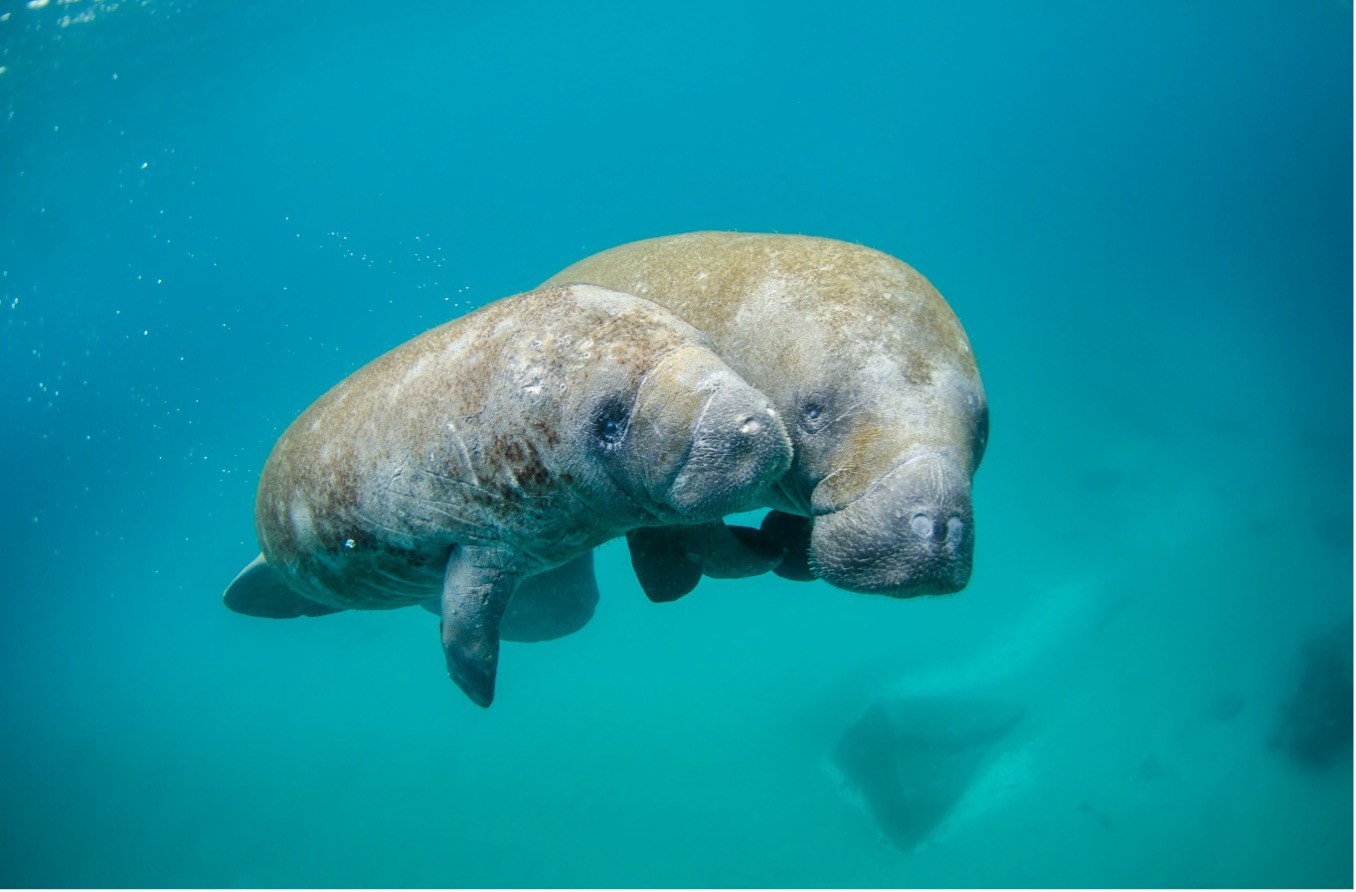Celebrating Florida’s State Mammal in the Month of November
Did you know there are cows in the ocean? Not the same cows you might see on a farm but sea cows! A ‘sea cow’ is another term for manatees, sometimes called ‘sea cows’ because of their slow and gentle nature and the plant-based diet they enjoy. Manatees spend most of their time grazing on underwater vegetation and move calmly and peacefully through the water.

Florida manatees are considered a protected species because their population is listed as “threatened” under the Endangered Species Act and they are protected under the Marine Mammal Protection Act. Manatee conservation is key because they play an important role in maintaining healthy aquatic ecosystems and they are facing more threats every year as Florida’s population continues to grow.
Keep reading to learn more about Manatee Awareness Month, the different threats manatees face, and five ways you can help. You can also get involved by registering for ‘Manatee Moments’, a K12 virtual field trip with Clearwater Marine Aquarium that delves into the aquatic life of manatees. You’ll learn more about these gentle giants and how Clearwater Marine Aquarium protects local manatees. Register for ‘Manatee Moments’, live on December 11, 2024, or check out the recording available on-demand in the K12 Virtual Fieldtrip Newsletter.
Manatee Awareness Month is a month-long recognition of the ongoing efforts being made to protect these gentle giants. Manatee Awareness Month aims to raise awareness about the threats manatees face such as habitat loss, boating accidents, and pollution. Manatee Awareness Month also teaches the community about different ways individuals can get involved in manatee protection and celebrates the progress made in manatee conservation.
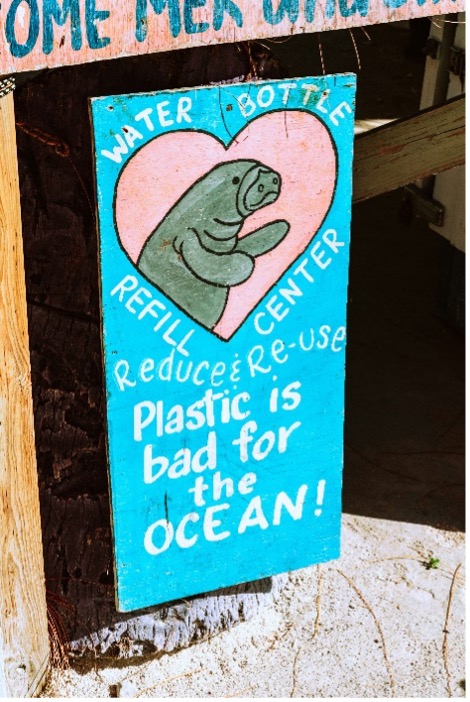
What is Manatee Awareness Month?
Manatee Awareness Month was first declared by former Florida governor Bob Graham in 1979, at a time when Florida was starting to establish its first manatee protection zones.
Manatee Awareness Month is celebrated every November, also marking the beginning of manatee season in Florida. Manatee season is from mid-November through March when the water temperatures become colder, and manatees start to seek out warmer waters.
Today, there are many organizations dedicated to protecting manatees. They all work together to make sure manatees have access to healthy and safe environments.
Why Manatees Matter
Manatees have an important role in the aquatic ecosystem because they help maintain the health of seagrass beds and other aquatic vegetation. As they graze on these underwater plants, they help prevent overgrowth, which leads to clearer water and a more balanced aquatic environment.
Manatee grazing also promotes the growth of new seagrass, which serves as a habitat and food source for a variety of marine life.
Threats to Manatees
According to the U.S. Fish and Wildlife Services, at least 8,350 manatees are estimated to inhabit Florida. However, it’s important to note that manatees face several challenges that threaten their survival.
Habitat Lost: Due to Florida’s population increase, many coastal areas have been developed, leading to the loss of seagrass beds and warm water springs. Development can also lead to the loss of nesting sites.

Another factor that can lead to habitat loss is harmful algal blooms (HAB), which occur when algae grow out of control and produce toxins that can be harmful to people, fish, marine mammals, and even birds. HABs can block the sunlight necessary for photosynthesis. If photosynthesis cannot occur, the seagrass will not grow and the manatees lose an important feeding source.
Pollution: Pollution and water debris are another harmful threat to manatees as they can become entangled in fishing gear or eat plastic trash. Entanglement can even lead to the amputation of a manatee’s flippers.
Nutrient pollutants that affect manatees are septic waste, pesticides, and fertilizer that run off into the water.
Boating Accidents: There is a lot of boat traffic inFlorida’s rivers, estuaries, and coastal waters – which also happens to be where manatees live. And because manatees graze on seagrass that grows in shallow water, manatees spend a lot of time close to the surface.
Manatees move gently and slowly so it’s difficult for them to move out of the way of a fast-approaching boat, putting them at even more risk for watercraft accidents. According to the National Wildlife Federation, research has found that 96% of Florida manatees have scars from boat strikes.
Cold Stress: Florida manatees depend on warm water for their survival because they can’t handle water temperatures below 68 degrees for too long. Manatees can develop cold stress syndrome, which is like people having pneumonia, and it can make manatees sick.
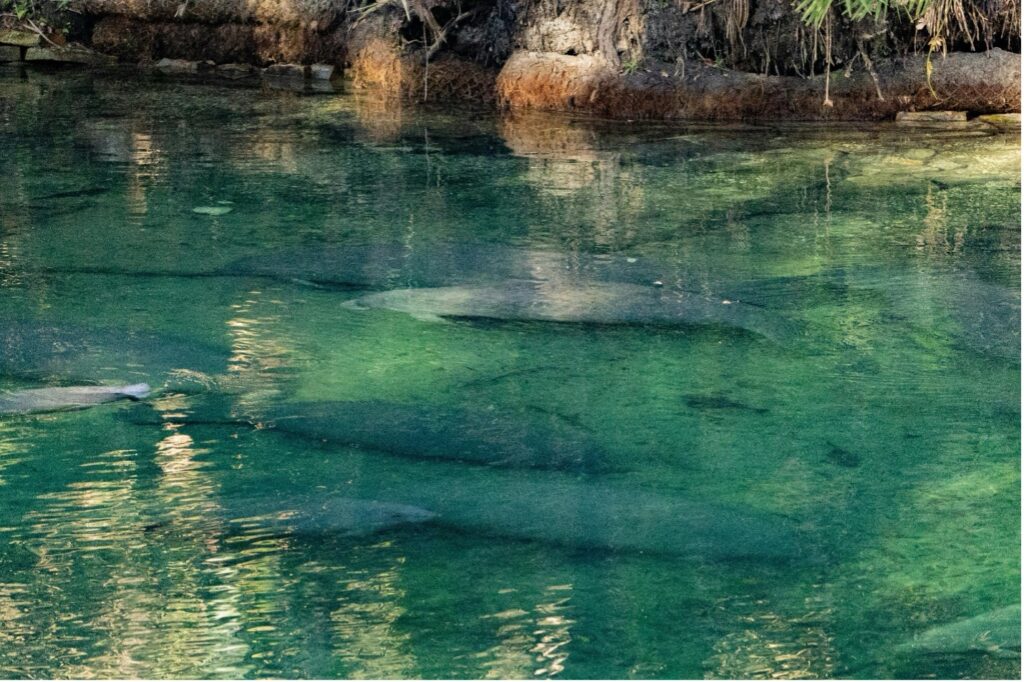
Many manatees will migrate to one of Florida’s natural springs, such as the Blue Spring State Park. Manatees will also rely on artificial sources of warm water, like canals next to power plants. Manatees who rely on artificial sources of water for warmth will continue to travel to these locations for years to come, even when the plants are no longer in service.
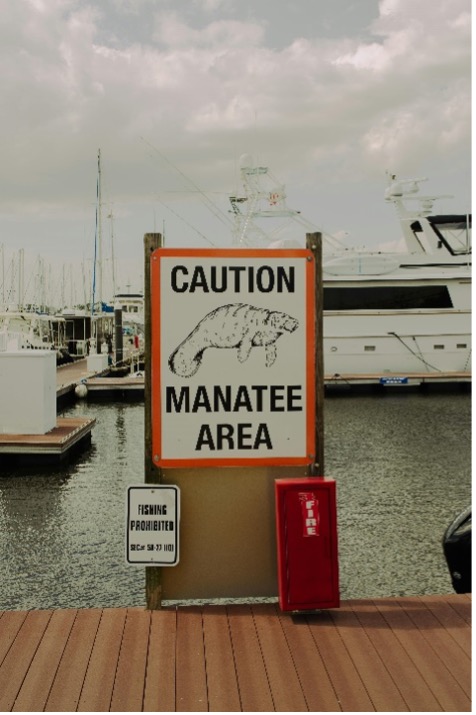
Ways You Can Help
Manatees are beloved giants and a federally protected species. There are many organizations dedicated to manatee conservation and ways you can help too! Below are five things you can do to help protect the Florida manatee.
1. Practice safe boating. Obey speed zone signs and be on the lookout for any manatees if you are boating. Make room for manatees and stay clear of seagrass beds.
2. Reduce pollution. You can protect waterways from algal blooms by decreasing the amount of pollution generated, whether trash or chemicals. Avoid using synthetic fertilizers and pesticides which can enter the water through runoff.
3. Observe from a distance. If you see a manatee keep a safe distance and don’t feed them. It is against the law to give food or fresh water to manatees. Human interactions can confuse manatees, and they might associate people and boats with food which can increase their risk of a boating accident.
4. Report sightings. If you see a sick, injured, or orphaned manatee you should immediately report it to your local wildlife authorities. Try to capture a photograph or video of the manatee and make a note if it leaves the area.
5. Teach others. Educating others about the threats Florida manatees face can help save them. By raising awareness for manatees, we can all foster a sense of responsibility to protect these gentle giants.
You can also research groups or organizations dedicated to help saving manatees to learn more about their conservation efforts and ways you can help. There are also many federal and local organizations such as the U.S. Fish and Wildlife Service, the National Wildlife Foundation, Save the Manatee Club, and the Friend of Manatee Lagoon with many resources available.
Virtual Field Trip Experience
‘Manatee Moments’, a K12 Virtual Field Trip, invites students in grades K-12 to virtually visit Clearwater Marine Aquarium (CMA) in Clearwater, Florida to learn more about manatees and the role CMA plays in local manatee conservation. Together, we will learn more about how CMA rehabilitates manatees and share more about their latest rescue facility.
CMA’s new Manatee Rehabilitation Center aims to heal sick and injured manatees so they can be released back into the wild. Yeti and Zamboni and two manatees who’ve spent time at the Manatee Rehabilitation Center and are currently being treated at ZooTampa at Lowry Park due to flooding from hurricane Helene at CMA.
To register for Manatee Moments or to watch it on-demand, please visit the K12 Virtual Fieldtrip Newsletter available here: https://secure.smore.com/ckzaf-virtual-field-trips
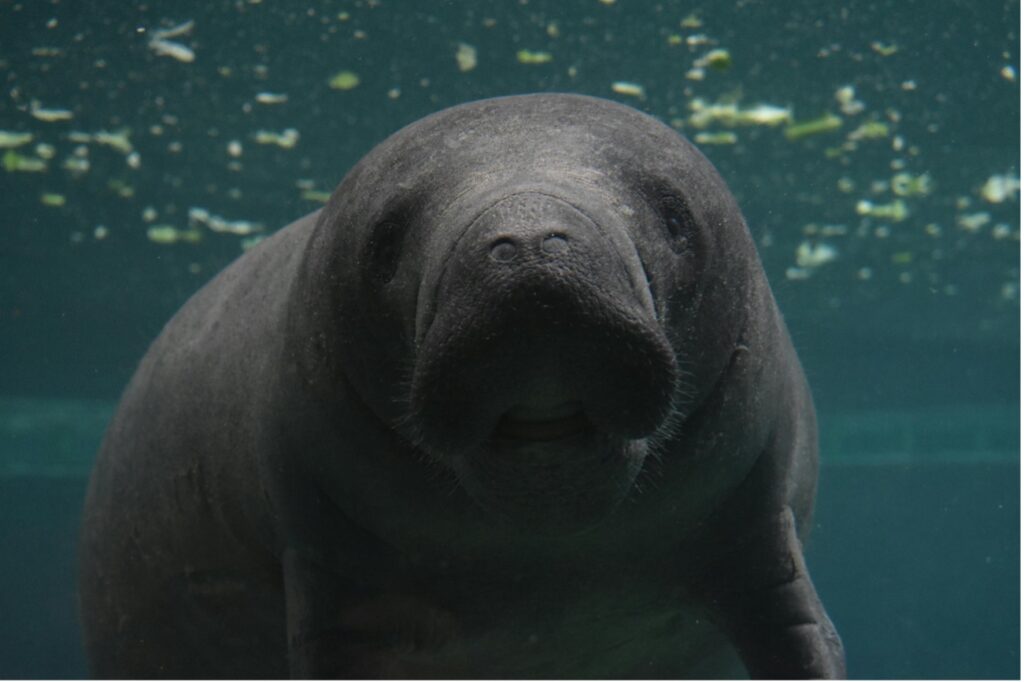
Wrapping Up
As we celebrate Manatee Awareness Month, we hope you will remember the important role these gentle giants play in the aquatic ecosystems and the challenges they face. By spreading awareness, practicing safe boating, reducing pollution, and learning more about conservation efforts, we can all contribute to the protection of manatees.
Don’t miss the chance to dive deeper into the world of manatees with the K12 Virtual Fieldtrip Manatee Moments, airing live on December 11 at 2:30 PM ET. You can also watch the recording available on demand in the K12 Virtual Fieldtrip Newsletter.
Together, we can make a difference and ensure a brighter future for Florida manatees. Register today and join us in making a positive impact.

